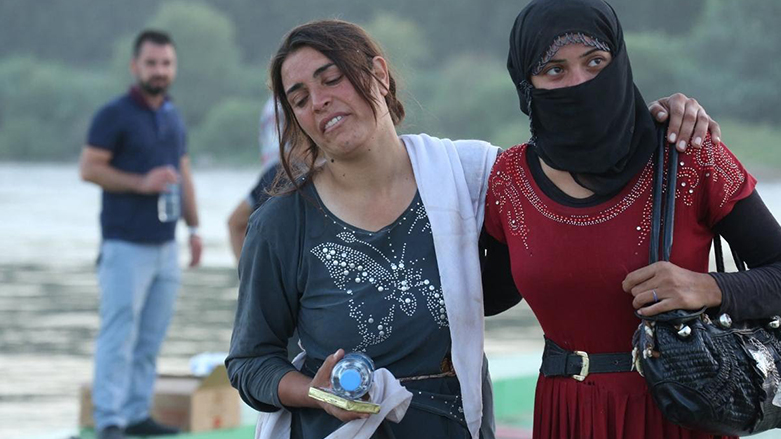White House ambivalence on prosecuting genocide

WHASHINGTON DC, United States (Kurdistan24) - On the evening of Aug. 3, the second anniversary of the start of Islamic State’s (IS) genocide against the Yezidi (Ezidi) Kurds, a small crowd stood outside the White House, cradling memorial candles in the warm, midsummer’s gathering twilight.
Stephen Rapp, Barack Obama’s former Ambassador-at-Large for War Crimes Issues, was among those who addressed the group.
Rapp explained that IS’ assault on the Ezidis is “one of the strongest cases I have ever seen as an international prosecutor of the crime of genocide.”
Naomi Kotler of the US Holocaust Memorial Museum described an Ezidi man “who had lost every single member of his family except one son.” She continued, “Seventy years ago, every single member of my grandfather’s family was murdered, simply for being Jewish.
“Today we have to say, ’Never again for the Ezidi people, never again for anyone.’”
Beyond demonstrating sympathy and solidarity with the victims, the gathering had another purpose: to prod the Obama administration into supporting the prosecution of IS in an international court for genocide against the Ezidis and other religious minorities, including Christians.
The Obama administration does not actively back such a step. It prefers Iraqi courts to prosecute IS’ crimes.
Responding to a question from Kurdistan24 earlier that day, a State Department spokesman had explained that the US was following the lead of the Baghdad government. We “[support] the efforts of the Iraqi Security Forces and authorities to hold the perpetrators of Daesh’s atrocities accountable,” he said.
As a Kurdish intellectual remarked, “This is a country that has repeatedly allowed genocide. And you bow to their will?”
The Iraqi government does not want to see IS prosecuted for genocide before an international court—although that would carry much greater moral and political weight than any Iraqi legal proceeding against IS.
Knowledgeable Kurdish and US sources advised Kurdistan24 that Baghdad is concerned that such a prosecution might set a precedent that could be used against the Shiite militias, the Hashd al-Shaabi.
Thus, in a recent Washington conference on IS’ persecution of religious minorities, sponsored by the State Department, Canada, Germany, Australia, and France all criticized the US hesitation on prosecuting IS. Moreover, it is Britain—not the US—that is taking the lead at the UN on this issue.
To be sure, the Obama administration supports the investigation and documentation of IS atrocities. However, as Rapp explained to Kurdistan24, such work is inextricably linked to the steps that will follow, including the forum in which the crimes are to be prosecuted.
The Ezidi leadership would like IS’ genocide referred to the International Criminal Court (ICC.) A conviction in the ICC would be highly respected, but it also requires a high standard of evidence.
As Rapp noted, there are individuals who have investigated crimes brought before the ICC. They are familiar with the procedures of the court. Less experienced investigators might not do the job as well.
Rapp also suggested that a vigorous investigation now could prove crucial, when Mosul is liberated. Such an investigation would help ensure that IS’ ringleaders were clearly identified in advance of the coalition offensive and enhance prospects for their capture and subsequent trial.
A US intelligence source suggested to Kurdistan24 that the US was “losing the moral high ground” by deferring to Baghdad on this issue. One key element in fighting a counter-insurgency war, he explained, was to secure that position in the eyes of the population.
Rapp, who prosecuted war crimes in Rwanda and Sierra Leone, stated that it was necessary “to repair the suffering” of the Ezidi community. The prosecution of those responsible is crucial to that healing.
There is also the principle: “Justice delayed is justice denied.” That is one consequence of Washington’s deferring to Baghdad on this matter. Those who have suffered at the hands of IS have no assurance now of seeing justice soon, or perhaps, ever.
Unfortunately, the Obama administration has adopted a policy of following Baghdad’s lead not only on this issue—but on almost every other matter as well. Kurds have suffered from this policy repeatedly.
Why has the Obama administration adopted this policy line? Kurdistan24’s next news analysis will attempt to answer that question, as well as explore the consequences of such a decision.
Editing by Delovan Barwari
